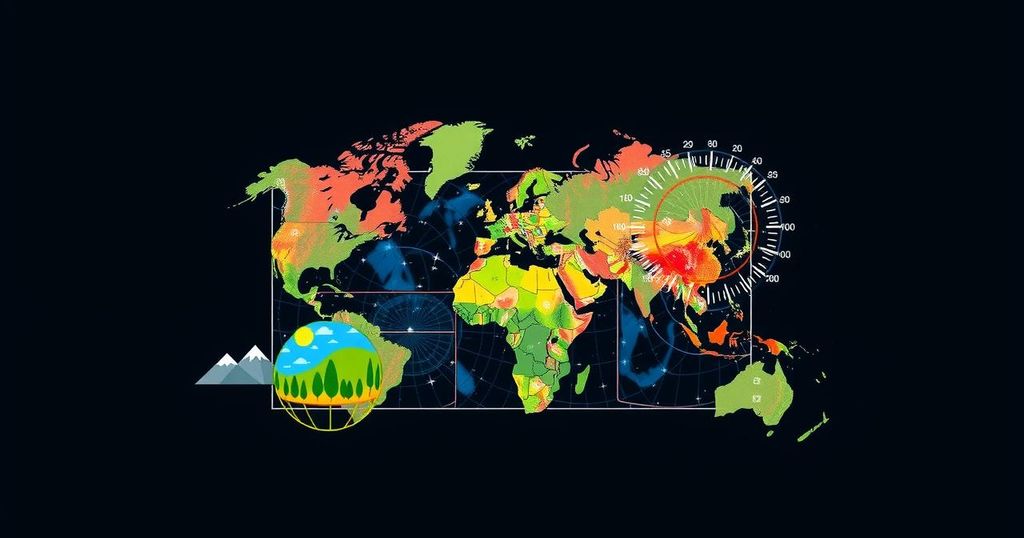ICJ Hearing Highlights Urgent Climate Legal Responsibilities for Nations

The ICJ has begun hearings on climate-related legal responsibilities, prompted by Vanuatu’s initiative, to clarify government obligations regarding climate action and damage repairs. Nearly 100 countries will testify, with significant implications for global climate litigation anticipated from this case. Vanuatu’s historical experiences emphasize the urgency of establishing a legal framework for accountability in combating climate change, with a ruling expected by 2025.
The International Court of Justice (ICJ) in The Hague has commenced hearings regarding a pivotal case that could establish the legal obligations of governments concerning climate change. Testimonies will be provided by nearly 100 nations, including Vanuatu, which initiated the request for a legal opinion. This case aims to clarify the actions countries are mandated to undertake to combat climate change and address damages associated with rising temperatures. Although the ICJ’s opinion will not be legally binding, it carries the potential to influence climate change litigation globally.
The proposal for the court’s legal opinion originated from law students in Fiji five years ago and was subsequently championed by Vanuatu, an island nation severely affected by climate impacts and rising sea levels. Approximately 80% of Vanuatu’s population experienced the repercussions of a double cyclone last year, leading to a six-month state of emergency declared by the government. Responding to Vanuatu’s advocacy and that of other nations, the UN General Assembly referred two significant climate inquiries to the ICJ, which focus on countries’ obligations under international law to mitigate greenhouse gas emissions and the legal ramifications of actions causing substantial environmental harm.
As the hearings unfold, Vanuatu will present its case first. Ralph Regenvanu, Vanuatu’s special envoy, emphasized the critical timing of this instance, insisting, “Our call for an advisory opinion from the ICJ on climate change is at a pivotal moment… one that sets clear the international legal obligations for climate action.” The court’s ruling, while advisory, may support small island nations in pursuing reparations from developed countries for losses endured due to historical emissions.
The ICJ’s hearings are scheduled to conclude on December 13, with an anticipated opinion to be released in 2025. Notably, this case follows the recent COP29 climate summit, where the commitment by developed nations to provide $300 billion annually in climate finance by 2035 was met with criticism from developing countries, which deemed the figure inadequate to meet their needs. The court proceedings will also include submissions from countries such as the United States and China, as well as representatives from the oil-producing organization OPEC.
The ongoing climate crisis necessitates urgent action and cooperation among countries globally. As rising temperatures increasingly impact vulnerable nations, international legal frameworks are being explored to assess the accountability and responsibilities of state actors in combating climate change. This case before the ICJ reflects growing international advocacy for robust climate action and seeks to establish a legal precedent that could empower affected nations in their pursuit of justice and reparations for climate-induced damages. The hearings may serve as a catalyst for enhancing global commitments towards climate action and reinforcing countries’ obligations under international law.
The ICJ’s hearings on climate change mark a significant step towards defining international legal responsibilities for combating climate issues. Vanuatu’s case exemplifies the urgent need for accountability among governments, particularly in light of the devastating impacts of climate change on vulnerable nations. Although the resulting opinion will not carry legal weight, it could influence future climate-related legal frameworks and settlement claims, prompting broader recognition of the duties towards sustainable environmental practices. The forthcoming rulings may further energize the global dialogue surrounding climate justice and advocacy for equitable climate finance.
Original Source: www.bbc.co.uk






